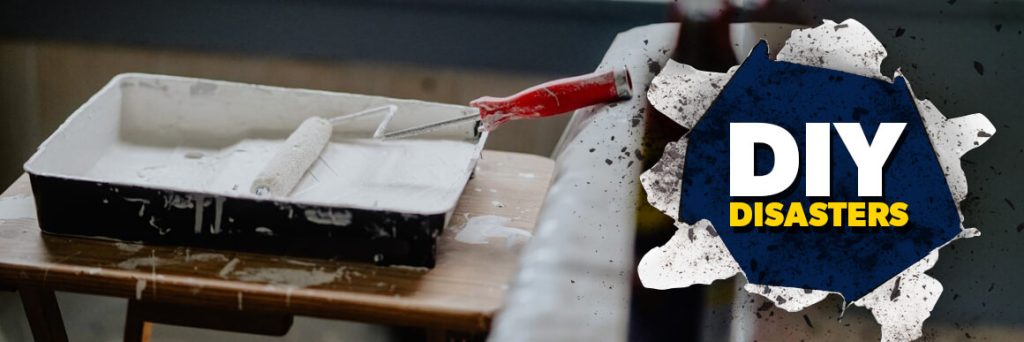
DIY disasters: when home remedies lead to more problems, seek medical help. Many people turn to home remedies for minor ailments, believing they can find quick and inexpensive solutions. However, sometimes these seemingly harmless remedies can unexpectedly lead to worse health problems. This article explores the potential dangers of self-treating with home remedies and emphasizes the importance of seeking professional medical advice.
Understanding the Dangers of DIY Remedies
Common Misconceptions
Many people believe home remedies are a safer and more natural alternative to conventional treatments. This belief often stems from anecdotal evidence, unproven claims, and the allure of easy solutions. Unfortunately, many home remedies are not scientifically proven to be effective, and some may even cause adverse effects or worsen existing health conditions. It’s important to approach alternative therapies and home remedies with a critical eye, acknowledging their potential limitations.
The Potential for Harm
Interactions and Allergies
Home remedies can interact negatively with prescription medications, potentially leading to serious complications. For instance, some herbal supplements may interfere with the effectiveness of blood thinners, while others can exacerbate existing allergies. Furthermore, individuals with pre-existing conditions or allergies may experience adverse reactions to ingredients found in many home remedies. These interactions can be unpredictable and potentially dangerous, emphasizing the importance of seeking professional medical guidance.
When Home Remedies Backfire
Diagnosing Issues
Improper diagnosis can further exacerbate problems. Self-diagnosing a condition and relying on home remedies can delay appropriate medical intervention. A doctor’s expertise is crucial for accurate diagnosis, allowing for tailored treatment plans that address underlying causes and prevent future complications.
The Importance of Professional Medical Advice
When to Seek Medical Help
Recognizing when home remedies are no longer helpful, and when to seek professional medical assistance, is key. Signs that a problem is escalating and professional help is needed can include worsening symptoms, the appearance of new symptoms, or the failure of home remedies to provide relief. It’s also crucial to acknowledge individual circumstances; some conditions require immediate medical attention, regardless of the perceived effectiveness of home remedies.
Case Studies and Examples
Common Mistakes
Consider a person with a mild headache who chooses to take a home remedy rather than consult a doctor. While the headache might subside temporarily, the underlying issue, like a severe migraine or brain tumor, could remain undiagnosed. Consequently, the individual could experience serious health consequences.
Prevention and Safety Precautions
Avoiding Potential Risks
Implementing preventive measures can help mitigate the risks associated with DIY treatments. Thorough research into the ingredients, potential side effects, and compatibility with other medications is essential before attempting any home remedy. Consult with a healthcare provider for personalized guidance.
Educating Yourself
Understanding Limitations
A crucial aspect of preventing DIY disasters is understanding the limitations of home remedies. Always prioritize consulting a healthcare professional for accurate diagnoses and effective treatment options.
Conclusion
FAQ
What are some common DIY remedies that can lead to disastrous health consequences?
Several DIY remedies, often touted as natural solutions, can lead to adverse reactions or exacerbate existing health conditions. Some herbal supplements might interact with prescription medications, potentially diminishing their effectiveness or leading to serious complications. Unproven remedies lacking scientific validation could mask underlying medical conditions, leading to delayed or inadequate treatment. Misusing home remedies, especially for severe symptoms, can worsen the situation. Relying on anecdotal evidence instead of professional guidance can be risky, particularly when dealing with serious or unknown conditions. Instead, consulting a healthcare professional is always recommended to assess potential risks and receive appropriate advice.
How can I tell if a home remedy is right for me?
Before attempting any home remedy, consult a healthcare professional to discuss any potential health complications or interactions with existing medications. Research the remedy thoroughly, seeking reliable information from credible sources. Be cautious of remedies with unproven efficacy and rely on scientific evidence to understand potential interactions and side effects. Consider seeking the advice of a qualified healthcare professional to help make informed decisions. Consulting medical professionals is important to determine whether home remedies are appropriate given your medical history and current health status. Additionally, some remedies may not suit everyone. Pre-existing conditions or allergies can significantly affect the outcome of DIY remedies. If you have any doubts, it’s always safer to seek a medical consultation for guidance and avoid the risks of home remedies if they don’t align with your specific medical situation.
In conclusion, DIY disasters can lead to significant health issues and financial burdens. Always prioritize seeking professional medical advice when home remedies don’t work or worsen symptoms. Before attempting any DIY treatment, consult with a healthcare professional. Their expertise is invaluable in determining the correct course of action for your individual needs and ensuring you avoid further complications. By understanding the potential risks and learning to recognize when to seek professional help, you can ensure your health and well-being.